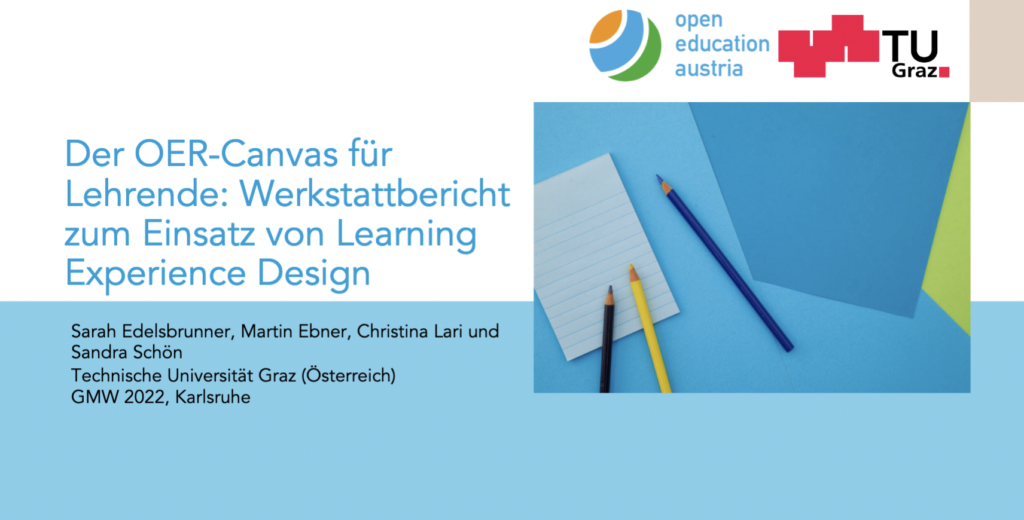Our publication about „OER Impact Assessment: A framework for higher education institutions and beyond. Approaches to assess the impact of Open Educational Resources“ got published.
Abstract:
The purpose of this paper is to provide an overview of approaches to and insights for impact assessment on open educational resources (OER) in higher education and building on this to sketch a framework for university focussed OER impact assessment. The authors describe the literature on impact assessment in the OER context and the existing contributions to OER impact assessment in higher education. Findings of the analysis are that there are few contributions on the effects of OER in general or of specific OER initiatives. Four contributions are presented in more detail. From these examples and the literature analysis, derivations, and challenges for OER impact assessment are drawn, such as the large diversity in OER purposes and the invisibility of the re-usage of OER. The contribution sketches a framework model for describing OER-relevant results, outcomes, and impact, and more specifically demonstrates how this can be done for exemplary OER-related objectives. This contribution is thus of relevance to funding bodies and institutions working in the context of higher education that wish to systematically evaluate and monitor statements about the effectiveness of OER activities according to the UNESCO (2019) OER recommendation.
[article @ journal’s homepage]
[article @ ResearchGate]
Reference: Ebner, Martin, Orr, Dominic and Schön, Sandra. „OER Impact Assessment: A framework for higher education institutions and beyond. Approaches to assess the impact of Open Educational Resources“ Open Education Studies, vol. 4, no. 1, 2022, pp. 296-309. https://doi.org/10.1515/edu-2022-0018



